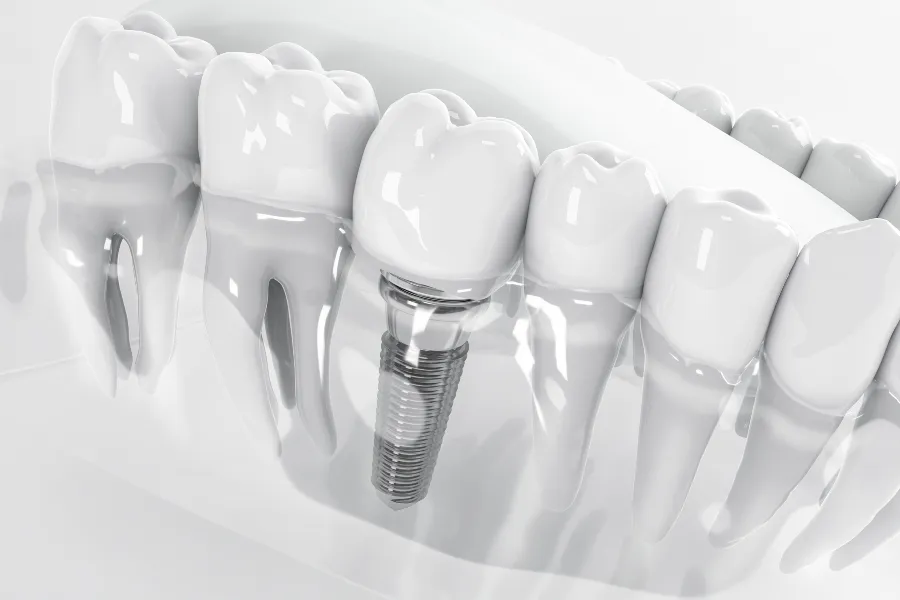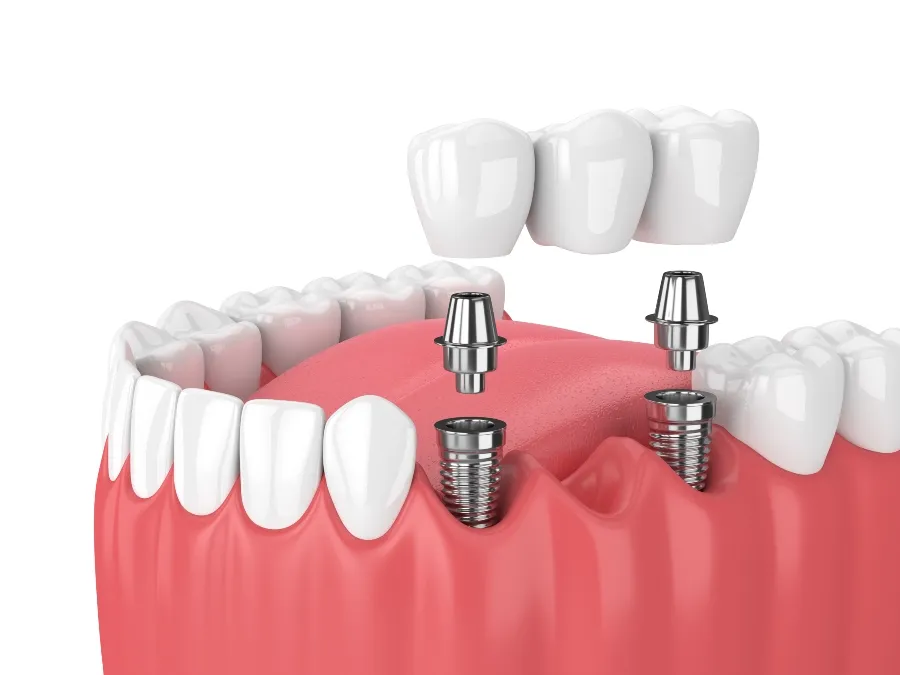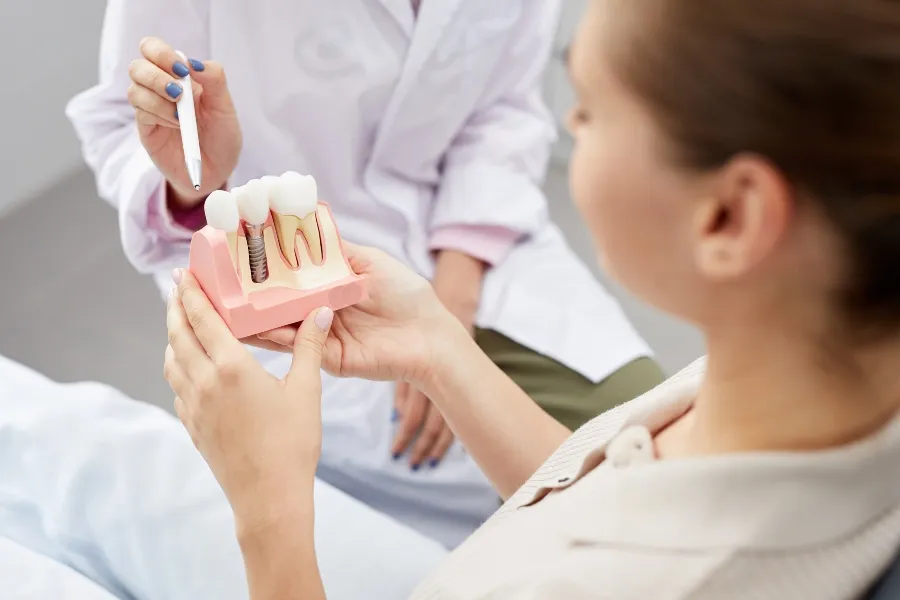Restore Your Smile with Dental Implants
Missing teeth? We can help! Dr. Ken Nwankwo and Dr. Leslie Powell provide dental implants in Dallas, Texas, to replace your missing teeth and fully restore your oral health, function and appearance. Give us a call at 214-888-6726 today to schedule your consultation with our skilled dentists and learn how dental implants can benefit you!
What Are Dental Implants?
Dental implants are a state-of-the-art solution for replacing missing teeth. They consist of a titanium post that is surgically placed in the jawbone, a connecting abutment and a custom restoration such as a crown, bridge or denture. Dental implants mimic the structure of natural teeth, offering unparalleled stability, functionality and aesthetics. By fusing with your jawbone, implants provide a durable foundation, allowing you to eat, speak and smile with confidence.
Benefits of Dental Implants
Dental implants offer numerous benefits that go beyond just restoring your smile, including:
- Preventing bone loss by stimulating the jawbone
- Maintaining the natural alignment of adjacent teeth
- Improving your oral function
- Giving you a highly stable solution that does not shift or slip
- Enhancing your facial appearance and supporting facial volume
- Providing a final result that looks, feels and functions exactly like your natural teeth
With proper care, dental implants can last a lifetime, making them a worthwhile investment in your oral health.
Preparing For Dental Implants
Preparation begins with a thorough consultation and evaluation. Our dentists will review your medical history, take X-rays and 3D images and assess the density of your jawbone. If your jawbone is too thin or soft, additional procedures such as bone grafting or sinus lifts may be necessary to create a stable foundation for the implants. Once your jaw is ready, a personalized treatment plan is developed.
Schedule Your Consultation
Interested in learning more about implant dentistry? Reach out to ConfiDent Smile Studio today at 214-888-6726 to schedule your personal consultation with our experienced dentists and learn if dental implants are right for you!






